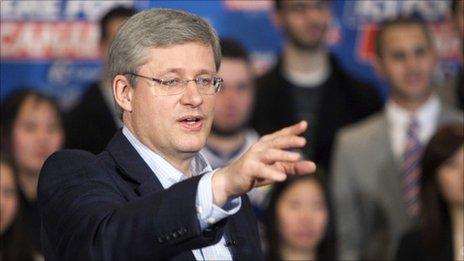Canada Liberal leader Ignatieff quits after election
- Published
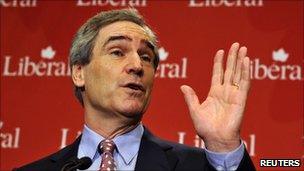
Mr Ignatieff's Liberal Party saw its seats in the House of Commons drop from 77 to 34
Former Harvard professor Michael Ignatieff says he is resigning as the leader of Canada's Liberal Party, after a crushing defeat in the country's general election.
PM Stephen Harper's Conservative Party took 167 seats to win a majority government in Monday's election.
The New Democratic Party (NDP) became the official opposition by claiming 102 seats, while the Liberals took 34.
The election marks the worst defeat in the history of the Liberal Party.
Mr Ignatieff said on Tuesday that Conservative attack ads, which made use of the more than 30 years Mr Ignatieff lived in Europe and the US, had a large impact on the outcome of the election.
"My attachment to the country, my patriotism were questioned, my motivations were questioned and that had a political effect, there's no doubt about that, but I have to also take my responsibilities," Mr Ignatieff said.
The Liberal Party dropped from 77 seats to 34 in the House of Commons, with Mr Ignatieff even losing his own seat in a suburb of the city of Toronto.
The election marks the first time in Canadian history the Liberal Party did not finish either first or second.
Mr Harper, meanwhile, pledged he would not shift his party to the right in light of it having won its first parliamentary majority.
"We got that mandate because the way we have governed and Canadians expect us to continue to move forward in the same way," he said.
Conservatives won 167 of the 308 electoral districts, earning 40% of the vote and 54% of the seats in parliament, Elections Canada reported, external.
US President Barack Obama called Mr Harper to congratulate him on the victory, the White House said.
Prime Minister Stephen Harper: "Canadians chose hope"
"The president said he looked forward to continuing his close cooperation with the prime minister," the White House said in a statement.
Mr Obama renewed his commitment to cross-border co-operation on trade, customs enforcement and security, the White House said.
Mr Harper, who took office in 2006, has previously won two elections but never before led a majority government.
Monday's vote was Canada's fourth general election in seven years.
Mr Harper went into the election having headed two successive minority Conservative governments since 2006. His party held 143 seats in the House of Commons prior to the dissolution of the last government.
Analysts say the prime minister has slowly nudged the country further to the right during his five-year tenure.
He has lowered sales and corporate taxes, avoided signing climate change legislation and become a stark advocate of Arctic sovereignty.
He has also increased military spending and extended Canada's military mission in Afghanistan.
New Democratic gains
NDP leader Jack Layton jubilantly greeted his supporters in Toronto on Monday evening.
"Spring is here, my friends, and a new chapter begins," Mr Layton said.
The NDP went into the election with 36 seats, compared with 77 for the Liberals and 143 for the Conservatives.
The separatist Bloc Quebecois, which seeks independence for the predominantly French-speaking Canadian province of Quebec, suffered heavy losses, retaining only four seats out of the 47 seats it previously held.
Its leader, Giles Duceppe, lost his own seat and resigned as party head.
In a historic first, Green Party leader Elizabeth May won her seat in British Columbia, becoming the first Green to be elected to the House of Commons.
Mr Harper's government was forced into an election after a no-confidence vote in parliament.
It was found to be in contempt of parliament because of its failure to disclose the full costs of anti-crime programmes, corporate tax cuts and plans to purchase stealth fighter jets from the US.
- Published3 May 2011
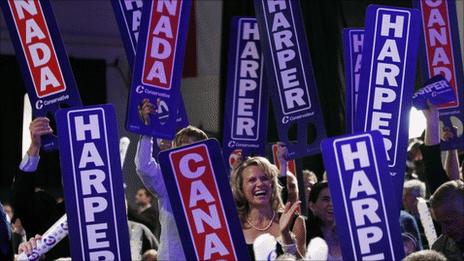
- Published26 August 2016
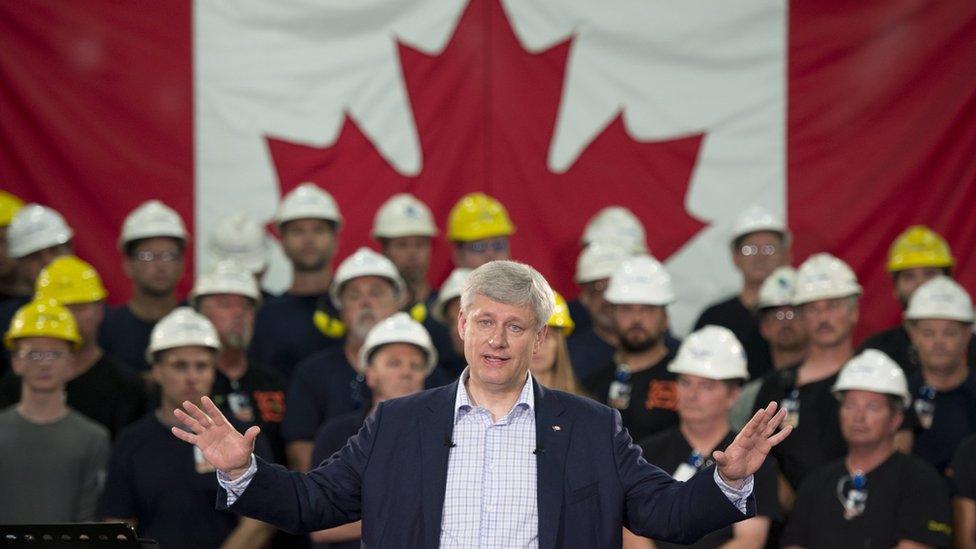
- Published3 May 2011

- Published30 April 2011
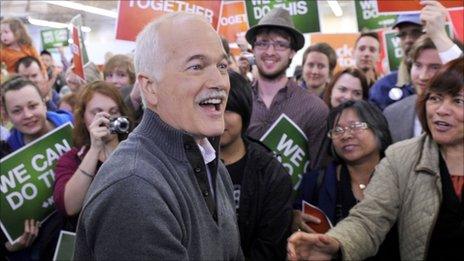
- Published30 April 2011
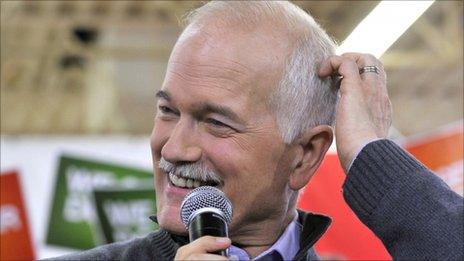
- Published21 April 2011
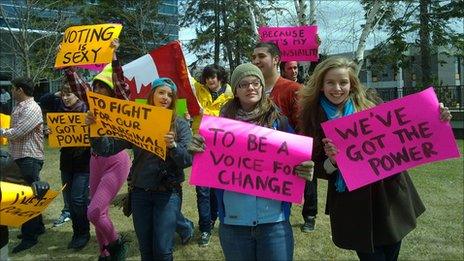
- Published29 April 2011
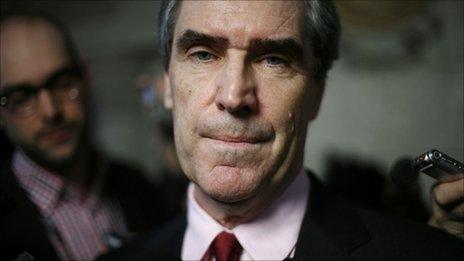
- Published29 April 2011
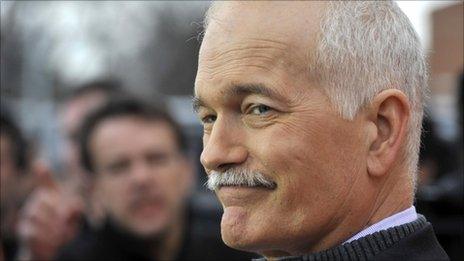
- Published13 April 2011
- Published28 April 2011
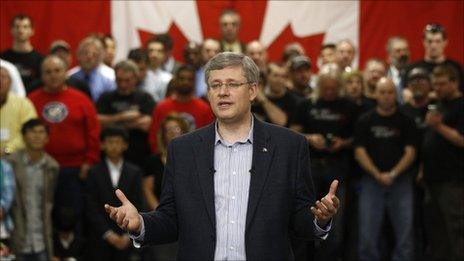
- Published22 April 2011
